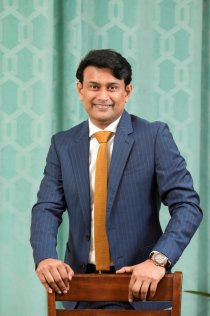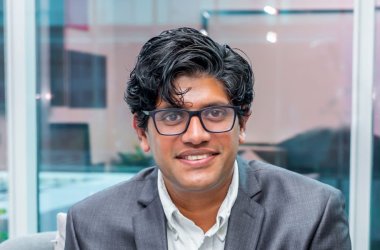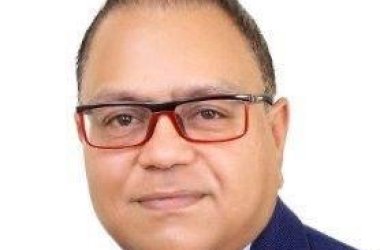
Sakkeer Hussain, Director – Sales & Marketing, D-Link Middle East & Africa, discusses technology, innovation, cloud and more.
Can you outline to our readers how your company has harnessed cutting-edge technologies to transform how you conduct your day-to-day operations to deliver the ‘experience’ that your customers, end-users, and partners’ demand in the experience economy?
We have optimised cutting-edge technologies such as Wi-Fi 6, 5G, cloud, cybersecurity, IoT, AI, etc. to transform day-to-day operations to deliver exceptional experiences in the experience economy. At D-Link, we make it a point to understand key touchpoints which matter the most to our customers and partners. We use AI and ML to analyse data and anticipate customer demands and offer personalised experiences. We leverage the scalability and flexibility of cloud platforms for efficient data storage and processing. We use 5G for faster and more reliable connectivity and ensure robust cybersecurity to protect our own and customer data. We also ensure that employees and partners are aligned in our mission to deliver exceptional experiences.
OpenAI and ChatGPT are all the rage, and these new AI integrations have been tipped to fundamentally reshape all major industries as we know them. What is your view on OpenAI, are you excited by the new opportunities that it will present, or do you think more regulation is needed to control its impact on society?
OpenAI has had a massive impact and contributed significantly to AI and ML. It has opened doors to new possibilities and applications across many domains. It has proved to be very innovative for writing content, language processing, image generation and problem solving. There is no doubt about its usefulness. However, like everything, there are cons and pros. While I am truly excited about the new opportunities it presents, I believe users of OpenAI should be double checking and verifying all facts. I believe it can be an enabler and quicken workloads, but one should be wary of plagiarism, check for true source, data privacy, security and so on.
It is key that we have a good balance.
There has been a swathe of digital and cloud transformation projects in the Middle East over the last 3-5 years. However, many have struggled with the demands of cloud transformation, especially legacy-heavy players. What are the key processes that enterprises need to adopt to ensure a successful transformation journey?
A successful cloud transformation journey involves a strategic approach that considers not only the technical aspects but also the organisational and cultural changes. The first step to digital and cloud transformation is assessing your current environment and tech assets and defining clear business objectives. Decide on the type of cloud strategy and deployment – will it be public, private or hybrid? What are the current requirements of the business? Think of security and compliance and data privacy. Training employees and buying the mindshare of leadership are also important steps. Usually, any kind of change is resisted so there needs to be an education before implementation. You must also identify and prioritise areas to be transformed first while also having a process for monitoring and optimising costs. This includes data migration and management, regular updates and so on. Digital and cloud transformations are continuous processes and not a one-time investment, so customers need to prepare and budget for it accordingly.
In your expert opinion, what do you view as the biggest problem facing enterprises in the IT and technology industry across the Middle East?
The biggest issue is trying to stay ahead of sophisticated threat actors and complying with diverse and evolving regulations across the region. Another huge challenge is the lack of skilled talent in the technology space in specific areas. The demand for IT professionals often outpaces the supply. Geopolitical uncertainties can also impact business operations.
This supplement is titled Tech Vision, so with that in mind, what do you think the future holds for the IT and tech sector across the Middle East, what will be the key trends and technologies that will really champion change over the next ‘digital decade’?
Digital transformation acceleration will continue to be the top priority for most businesses across sectors in the region. Adoption of cloud technologies will grow to new levels as organisations leverage cloud services for scalability, cost-effectiveness and enhanced collaboration. Businesses will invest more into adoption of advanced threat detection and response solutions as cybersecurity continues to be a priority. AI and ML applications will be increasingly used in all areas, especially automation, predictive analysis and better customer experiences.





